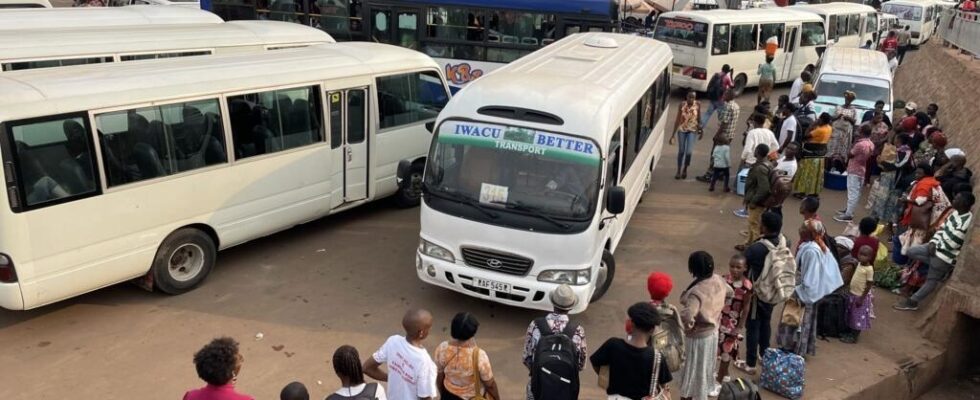In Rwanda, as the presidential and legislative elections of July 15 approach, the government ended in March a policy of subsidizing public transport fares adopted in 2020. A decision that weighs on the purchasing power of many Rwandans despite inflation in food prices that seems to be under control. Report.
3 min
With our special correspondent in Kigali, Liza Fabbian
Albert drops a large handful of dried beans into a plastic basin before weighing them. The price of this staple had risen sharply in recent years, but the trader has noticed a sharp drop this season. Last year, the price of beans was very high, almost 1,300 Rwandan francs [environ 91 centimes d’euros, NDLR] per kilohe says. Now it is almost half the price, even if we are not yet at the pre-Covid prices, when a kilo was barely 600 francs. [moins de 50 centimes d’euros, NDLR] on average “.
According to the National Institute of Statistics of Rwandageneral inflation was 5% in June compared to last year. And it is especially the price of transport that weighs on the wallets of Rwandans. In March, the government ended a subsidy policy adopted in October 2020. A decision that came as a great surprise to a teacher encountered at the Nyabugogo bus station. The price of my daily commute has increased from 220 to 310 Rwandan francshe explains. So sometimes I have to walk to reduce my expenses. Of course, this decision took us by surprise, because our salaries have not increased! »
The cost of public transport has jumped by around 24% compared to 2023
Another passenger believes that the lifting of subsidies – which cost the Rwandan state nearly 62 million euros, according to the Minister of Infrastructure – should have been more gradual. We ask the government to reduce the price of public transporthe says. I pay 400 francs to go from here to Birembo. That’s twice as much as before! They should have made sure that it only increased by 300 francs, for example. I don’t complain about the price of food, but the cost of transport, yes. “.
This has jumped by about 24%, on average, compared to last year, according to official Rwandan government data.
Rwandans will go to the polls on July 15, 2024, for presidential and legislative elections. Unsurprisingly, President Paul Kagame, in power for 24 years, is running for a fourth term, which he is sure to win.
Among the concerns of the Rwandan population, the cost of living. Inflation, which had increased significantly in the country in 2022 and 2023, has slowed down significantly in 2024. But, while food inflation seems to be under control, public transport prices have exploded in recent months in the country, weighing on the purchasing power of many workers.
Read alsoIn Rwanda, Burundi border residents want the border to be reopened: “There is no more trade”
